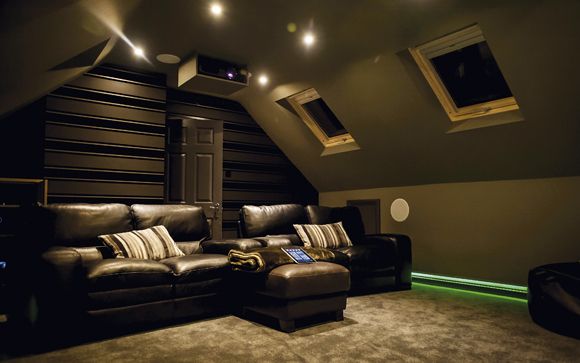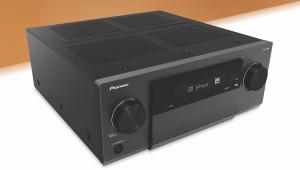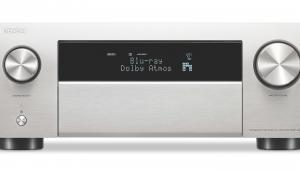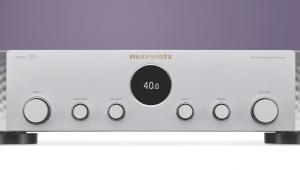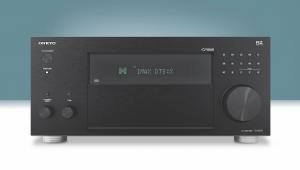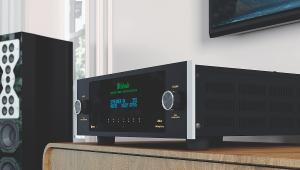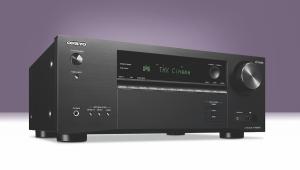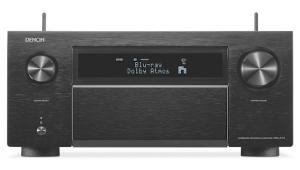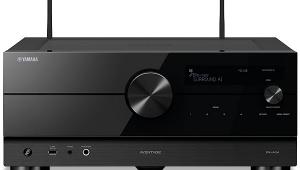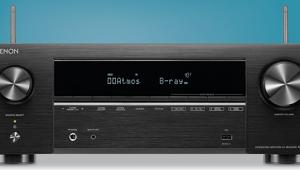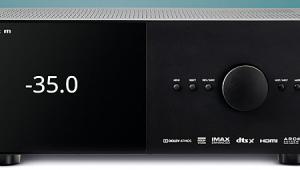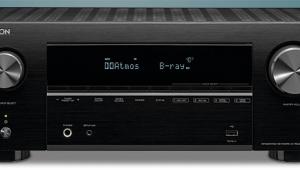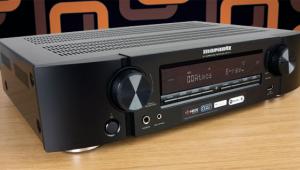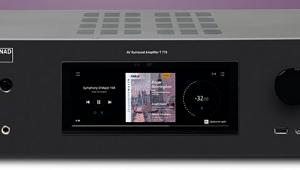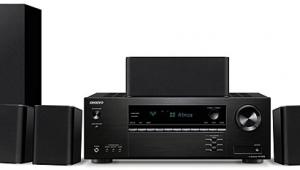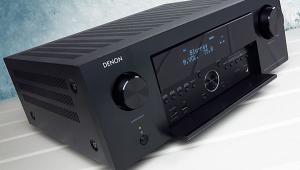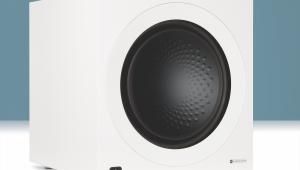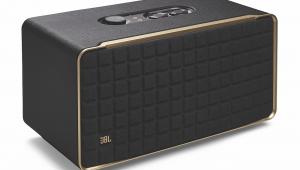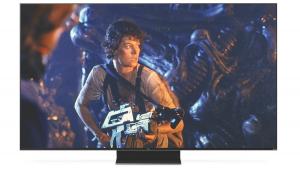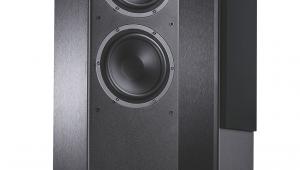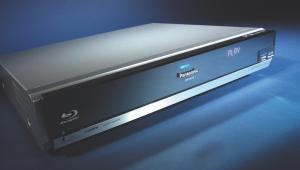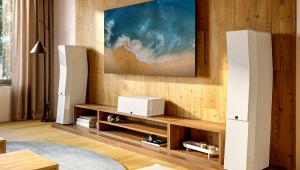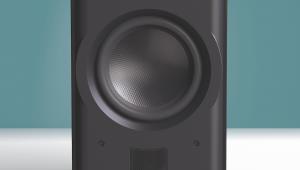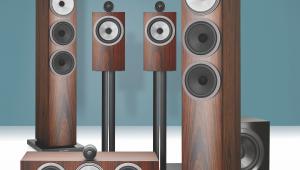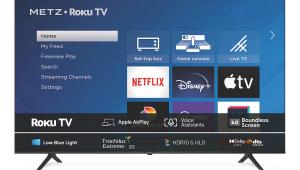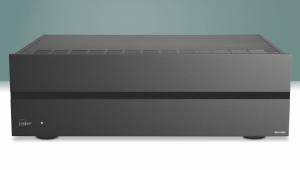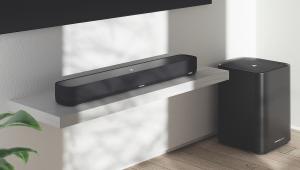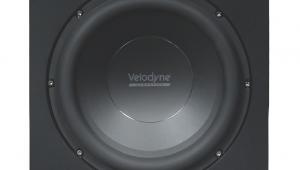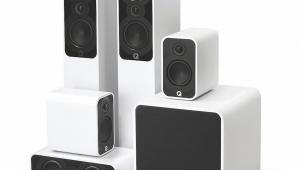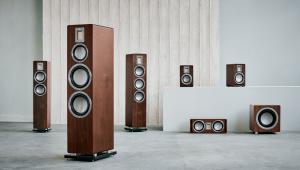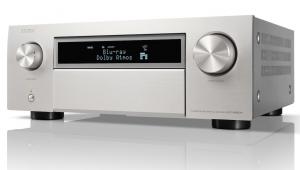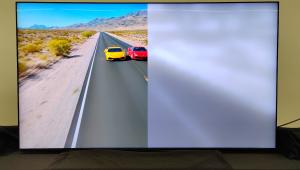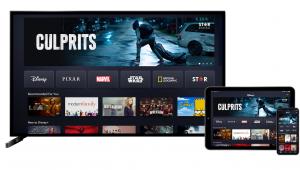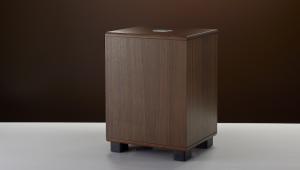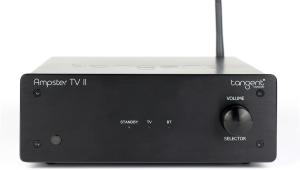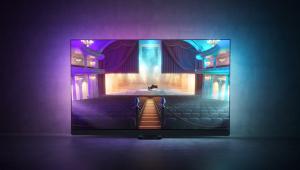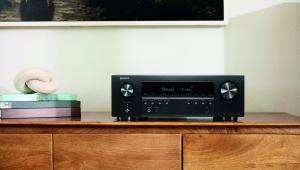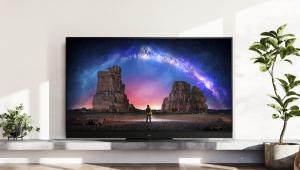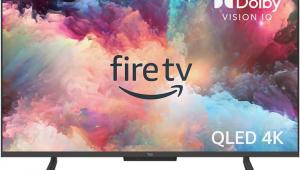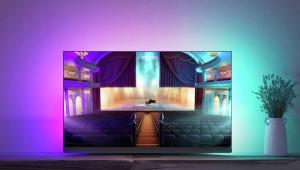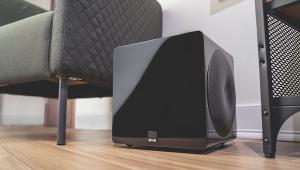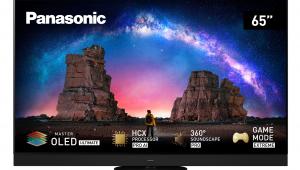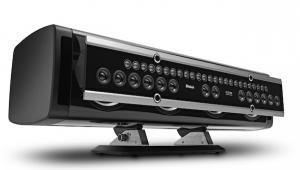Denon AVR-2311 review
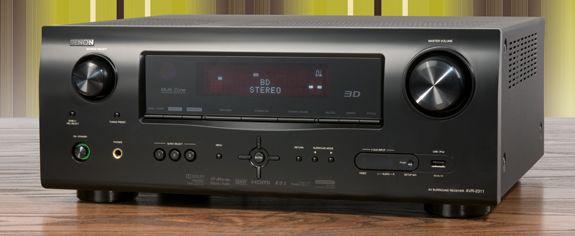
Coming to the ring in its all- black livery is Denon’s latest middleweight contender, the AVR-2311. The latest in a long line of Denon champions, this model is more an evolution of the heavy-hitting 2310 than a revolution in its own right. That said, the predecessor had a lot going for it, including a fast-paced and exciting sound, plus a feature list that had much of the competition whimpering in their respective corners.
At the heart of the AVR-2311 you get the same core processing chipset and power-house amplification offering a very respectable 135W into 6Ω, on paper at least. It is fully kitted out with the latest HD audio decoding, and promises 1080p images from almost any source. The changes, tweaks and upgrades of last year’s model are subtle, but bring the design more up to date.
The HDMI in and outs are now v1.4a specification, although the choice of six inputs and a single output on the 2311 would have been better configured five/two in my opinion. They offer Audio Return Channel from your TV should you want to amplify Jeremy Kyle in the morning and are 3DTV compatible for switching. The new video scaling engine is based around Anchor Bay’s fourth-generation chipset with its proprietary Precision Deinterlacing and its five-field motion-adaptive processing. It’s not ABT’s top-spec chipset, but it certainly packs in most of the good stuff.
The back panel is comprehensively equipped making the 2311 a natural step up from the rather frugal 1911 for those with plenty of sources. The multichannel output suite is equipped with twin sub outputs and, with Dolby Pro-Logic IIz on board, there is a spare set of speaker terminals for front height channels. It is a 7-channel amplifier, however, so you have to choose between rear-back or height speakers – a subject that invariably starts a bun fight in the HCC office.
Four go missingOn the missing list are four important connections, however. The first is that the MM phono input has gone from the previous model, which is no big thing. More seriously, there are no multichannel inputs for those of us who still own multichannel SACD players; there’s only a single USB terminal on the front panel and not hide nor hair of an Ethernet connection. On a machine costing this much, I would have thought the latter was damn near mandatory these days, not only for internet radio, streaming, and NAS-based media, but also for firmware updates.
In a comeback that would have George Foreman nodding sympathetically, though, the front USB input can be connected to an iPod or iPhone digitally. Most docks or USB-based Apple connectors allow the phone or player to convert the digital files to analogue music (through arguably the worst DACs in the world – thanks Apple) before going to your amp.
The AVR2311 interrogates the inner working of the device and streams a PCM digital signal from the device to its onboard decoders. Load up your iPod with high-bitrate or lossless music and you’ve got yourself a very fine high-end music server.
Cosmetically, the AVR-2311 is about a six out of 10. Not ugly but quite plain and, like many sixes, looks a whole lot better after a bottle of Rioja. I was no great fan of the last generation’s flip-over remote control either, with its buttons on both sides, so I welcome the return of a single-sided remote. Interestingly, the device’s bottom two buttons are labelled Party and Sleep. Now that is my sort of gadget.
Stuck in the middlePowered up, the Denon’s GUI also scores about six out of 10. It is much advanced from some of the old black text menu systems, but equally it falls shy of the beauty of the brand’s full phat picture GUIs. It comprises menus with some colour and a couple of line drawings, basically. However, it is easy enough to navigate without referring to the manual and it offers Audyssey auto-set up with a mic supplied. The end of the setup asks you if you want to default to Audyssey Dynamic Volume and/or Dynamic EQ before saving the setup, then away you go.
The Audyssey MultEQ room EQ system defaults to ‘on’ and did a reasonable job of balancing my room on the first run. While experimenting with a full-range speaker system with no subs during this test, I dived into the manual EQ settings. I was pleasantly surprised to find you could copy over the measured Audyssey curves and then tweak each band on each channel from that point: very useful and very flexible indeed. Likewise, I take my hat off to Denon for including a reasonably comprehensive video adjust menu, if you want to add a little more punch to your picture.
Sound quality is another area upgraded over the old 2310, and HCC got an inside track on the fact that this model was tuned and benchmarked by a pair of UK born and bred ears. In fact, said ears explained some of the finer points of the new model over lunch when the review sample arrived.
And it doesn’t take long to hear the differences: the opening sequence of Star Trek (2009) blistered into the room with speed and detail aplenty. A heady mix of big bass effects and upper frequencies with real sparkle make the 2311 an amp that wows from the outset.
Spectacular deliveryAs Captain George Kirk (Snr) ploughs the USS Kelvin into Nero’s fearsome mining ship, while his wife gives birth in an escape shuttle, the Denon doesn’t hold back in delivering both the action and the emotion of the scene. It is a full-on thrill ride charged with poignancy and, as the ships collide and the scene cuts to a view from space, the silence is crushing. The effect was only a little dampened by a fairly obvious digital ‘clicking’ sound through the speakers as you raise and lower the volume. This was a feature of some of the earliest AVRs to implement DSP-based digital volume controls. I am surprised Denon let this one slip through, although once you have set the volume for film watching you are not going to hear it, of course.
The dialogue through Star Trek is quite intense, particularly some of the scenes in the Vulcan academy with its ambient, lofty halls. The Denon crafts the open space with plenty of scale and a good sense of height even in 5.1 mode. Footsteps echo on hard floors with a realistic tone and small details such as rustling clothes are delivered in detail. When Spock’s father walks down the corridor and sits beside his young son in detention after a fight, you can feel every bit of the cool atmosphere. If anything, the AVR-2311 sounds just a little too clinical with this fine detailing, etching them in the room to perfection, yet falling just a little shy of the natural smoothness required to make them truly believable.
Despite that, it certainly steps up the sonic pace from its predecessor and is a frisky performer that will thrill with big blockbuster action movies. Its articulate balance is more detailed and energetic than the bigger, weightier sound of Denons of old, but I am not sure I wholly dig the shift, personally. Add to this the, frankly, odd lack of networking features, and I find the AVR-2311 a little wanting despite it being a better overall machine than the much-loved, old AVR-2310. I’m confused.
HCC VERDICT
Denon AVR-2311
Price: £800 Approx
Highs: Articulate, fast-paced sound; digital iPod/iPad connection
Lows: Lack of networking; sound could be smoother; no multichannel inputs
Performance: 4/5
Design: 4/5
Features: 3/5
Overall: 4/5
Specifications
Dolby TrueHD: yes and Dolby Pro-Logic IIz
DTS-HD Master Audio: yes and DTS ES 6.1 Discrete
THX: no
Multichannel input: no
Multichannel output: yes 7.2 phono
Multiroom: yes main + 1 zone
AV inputs: yes 5 x S-video and phono audio
HDMI: yes 6-in 1-out, v1.4
Video upscaling: yes to 1080p
Component video: yes 2-in, 1-out
Amplification: 7 x 135W claimed
Dimensions: 434(w) x 381(d) x 171(h)mm
Weight: 11.2kg
Also featuring: Dolby Pro-Logic IIz; Height channel output terminals; video picture adjustments; video noise reduction; PCM input from iPod; HDMI v1.4a; twin subwoofer outputs; iPod/phone control app on the way; FM/AM tuner; Audyssey MultEQ RoomEQ and auto setup with supplied mic; WMA, MP3, FLAC and WAV file playback from USB
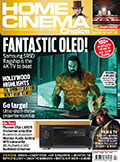 |
Home Cinema Choice #351 is on sale now, featuring: Samsung S95D flagship OLED TV; Ascendo loudspeakers; Pioneer VSA-LX805 AV receiver; UST projector roundup; 2024’s summer movies; Conan 4K; and more
|
